There’s a very good chance that if you sat next to him on the subway, you wouldn’t know you were sitting next to Jimmy Webb. Although he has released more than a dozen albums under his own name since 1968, Webb has always been more of a nuts-and-bolts, behind-the-scenes kind of guy. But even if you don’t recognize his face, you know his songs. If you’ve turned on a radio in the past 50+ years, his compositions have likely reached your ears many thousands of times.
“Mac Arthur Park,” a huge hit for both Richard Harris and Donna Summer; “By the Time I Get to Phoenix,” “Galveston” and “Wichita Lineman” for Glen Campbell; “Up, Up and Away” by the Fifth Dimension; the Brooklyn Bridge’s “Worst That Could Happen.” Those only scratch the surface—Webb penned dozens of hits, produced records, recorded his own albums and won every conceivable award a songwriter can win.
Webb, born August 15, 1946, remains active today as a songwriter and performer. He tours internationally and in 2017 was honored with a Carnegie Hall tribute concert featuring Johnny Rivers, B.J. Thomas, and many other artists. He also plays jazz festivals, presents intimate concerts he calls An Evening with Jimmy Webb and has a multimedia show titled Jimmy Webb: The Glen Campbell Years.
In the first half of our two-part interview with the great Jimmy Webb, we discuss some of the hits and some of the misses…
You’re premiering a work called “Nocturne for Piano and Orchestra.” What is the nature of the piece and what inspired it?
Jimmy Webb: Jeffrey Biegel, an important pianist, commissioned the piece with the Kentucky Orchestra. They brought [the idea] to me and I’ve always been an aficionado of classical music and have always fancied writing pieces. I’ve written a cantata called “The Animals’ Christmas,” which was recorded by Art Garfunkel and Amy Grant, and then in 2007 I did a centennial piece for the state of Oklahoma. So I’m not a novice. I’ve also always incorporated classical elements into my solo albums, even in a rock ’n’ roll piece. When I produced “Jumpin’ Jack Flash” with [singer] Thelma Houston [for her 1969 Sunflower LP], there’s a string fugue in the middle of it. I always felt that the connection is there, if you want to exploit it, between high-class popular music and classical music.
Even on “MacArthur Park,” you incorporated orchestration.
JW: I was asked by Bones Howe, who was producing the Association at the time, if I thought I could write an extended piece for the Association, which would incorporate rock elements and classical elements, and specifically different movements. It was like putting red meat in front of a mountain lion. They didn’t include it on the album, or even have room for it, but it ended up as a chart record.
You’re being modest when you say “chart record.” The Richard Harris recording went up to #2.
JW: If I had known it was going to be as huge a record I would have put a guitar solo in the middle 32 [bars], where it’s uptempo. We were all thinking album cut, a way to show some different applications of classical music and rock. It was a complete surprise when it went top 40.
How did Richard Harris come to record it?
JW: I went over to England with some songs for Richard in my little briefcase. I had decided I was going to attempt to produce an album with him. He’d just done the score of Camelot and had done a great job. He loved big things and empirical statements—he liked to play kings and dictators—so the song was big enough for him. He did lend a great dramatic texture to it. The album, A Tramp Shining, was an international hit, and “MacArthur Park” has been recorded ever since. There are probably about 300-400 recordings of it.
What did you think of Donna Summer’s version?
JW: I thought it was fantastic. It was my first #1 record in the United States.
Related: Our feature on “MacArthur Park,” a recipe for a hit
You have a memoir called The Cake and the Rain. So maybe this is a good time to explain, once and for all, the line “someone left the cake out in the rain” in that song.
JW: It’s a question I’ve been asked a million times and I don’t mean to sound defensive but a lot of the music then was high camp in a way. There were lyrics that were outside the pale. In fact, “A Whiter Shade of Pale” is an interesting lyric to look at. If you’re trying to get a literal message from it, or from Don McLean’s “American Pie” or the Beatles’ “Strawberry Fields”… There were numerous songs that were somewhat vague in the lyrical department, but for some reason, the public seized on this line. What was the cake out in the rain? And who left the damn thing out there? Some people have said they wish they’d never heard of this cake! Not to put a drumroll on it, but it’s a kind of minor controversial song, with its detractors. But I don’t get it because certainly there are songs that are more dense and difficult.
Why do you think it has detractors? What don’t they like about it?
JW: Music is supposed to reflect its time, and really that was kind of airy-fairy. I remember phrases coming in like “the canyons of my mind.” The canyons of your mind—OK. These were lyrics we really hadn’t heard before in American music. We’d had people like [songwriting team] Bacharach-David. Dylan was very poetic and lyrical and he got out there when it came to imagery. You were on your own trying to figure out what was being said. The Beatles really brought it to the fore and the drug culture, Haight-Ashbury and the Monterey Pop Festival; in the shadow of Sgt. Pepper’s Lonely Hearts Club Band, there was a whole generation of those kind of lyrics. [Calling the book] The Cake and the Rain is my way of saying this is a bone of contention, here it is, I’m going to talk about it. But I think the reader will find out that there’s a lot more going on. It’s a peculiar, and in a way privileged and rare, perspective: a songwriter who hung out with extremely famous people but was almost never noticed. Some historical things happened that I was witness to, without even intending to be.
Like what?
JW: I was in London when Tiny Tim walked out on the balcony at the Dorchester Hotel and all these hard-leftist demonstrators and agitators went down on their knees as though they were seeing the Pope. Tiny Tim came out and gave them his blessing. Such a bizarre scene. The book is not a waster of time; it’s a look at the ’60s purely from a songwriter’s perspective.
“By the Time I Get to Phoenix” and “Wichita Lineman,” the two songs most associated with Glen Campbell, were the opposite of “MacArthur Park” in that they were very clear story songs. There was no ambiguity there.
JW: I’ve been accused of ambiguity [with those too] but I’m finding out that that’s just an obstacle that comes with the territory. Not everybody understands everything. In [Paul Simon’s] “The Boxer,” there’s that line where he says he took some comfort from the whores on Seventh Avenue.” And a lot of people thought it was “a horse on Seventh Avenue.” When “Wichita Lineman” came out, which I wrote specifically for Glen as a followup to “By the Time I Get to Phoenix,” it hit, which almost never happens.
You didn’t think “Wichita Lineman” was going to be a hit?
JW: The rule is that nothing ever works out the way you want it to—that’s our business. But in this particular case, it was a hit. A lady wrote me from Texas and said that she loved the song, that she and her husband Elmer played it almost every day, but they didn’t understand why the young man had to die at the end. You have to sit and think about that but the line is, “The Wichita lineman is still on the line.” He’s still up there, hanging on the line; in other words, his body is still up there. People will take things and run whichever way. But in a way, that’s the beauty of the three-minute song, that its appeal can be so broad so as to make it a success with a couple of million people at the same time. How do you actually get a reaction from two million people at the very same moment? That’s what a hit is. But I think they’re all hearing it slightly different.
Related: Glen Campbell’s variety show premieres, in 1969
Were there any songs you were sure would be a hit but were not?
JW: It’s happened a lot of times. I can think of whole albums. The Thelma Houston album [Sunshower] I produced after the two Richard Harris albums. She became a disco star and had a big career, and she was truly a find, an Aretha Franklin-like singer. She was quite young and came out of nowhere. No one knew her and I took her. I said, “I’m going to introduce this woman to the world.” Paul Shaffer, who led the Most Dangerous Band on the David Letterman show for so many years, who’s a friend, he told me that he thought that Sunshower was one of the greatest albums of the rock era. I worked my ass off on that and I knew it was gonna be a hit. The record company had different ideas. I was having a personal feud with the head of the label but I figured when it came to records and making money that we could momentarily shelve our differences—our differences being that I wanted to make an album of my own and he didn’t want me to do it. But they didn’t work on [Sunshower]. It came out to no promotion or, in their words, no single, which is a way they condemn the prisoner.
Any others that you feel should have been bigger?
JW: Another much lauded album, Magic Garden, which was my second album for the Fifth Dimension, [co-produced] with Bones Howe, they said, “There’s no single here.” So that’s like a dead man walking. But there was a song on there, a solo performance by Billy Davis, called “Worst That Could Happen.” And while they were talking about “no hits on the album,” a young guy named Wes Farrell, who was married to Tina Sinatra, called me up one day and said, “Do you have any objections to me cutting ‘Worst That Could Happen’ with this old doo-wop guy, Johnny Maestro? He still sings great. I’ve got this group called the Brooklyn Bridge.” I said, “Hey, I think it’s a hit.” They went out and did a very complimentary version, with most of what we had done production-wise, and it was top 10 in four or five weeks.
Watch Jimmy Webb perform one of his biggest hits, “Galveston”
Part 2 of our interview is here. [Webb’s books are available here.]

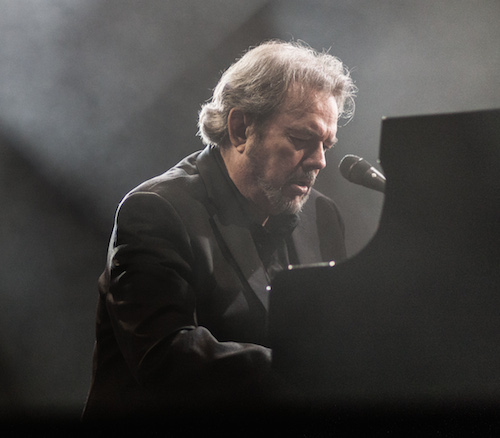

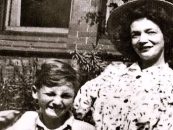
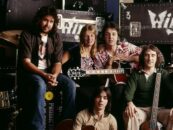
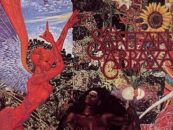
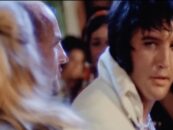

3 Comments so far
Jump into a conversationI have never understood why Jimmy’s album with Art Garfunkel (Watermark) wasn’t more successful. “Crying in My Sleep” and “Someone Else” are great songs, for starters.
Jimmy, you’re, without a doubt, one of the greatest pop songwriters of all time. But you also give a greater understanding as to why songwriters are often not the best performers of their own songs.
He also wrote a terrific book about songwriting, “Tunesmith”. Pedantic perhaps, but what an education.